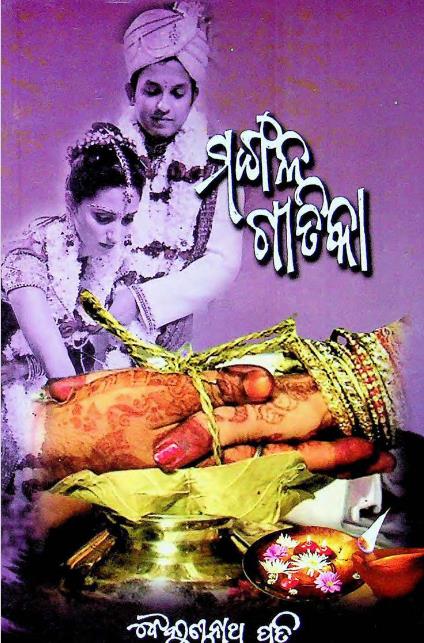In the vast realm of Odia literature, Baikunthanath Pati’s Mangal Gitika, published in 2012, stands out as a significant work that intricately weaves themes of marriage and family into its poetic fabric. Pati’s ability to encapsulate the essence of human relationships and the sanctity of familial bonds resonates deeply, allowing readers to reflect on the cultural nuances inherent in the Odia context.
The term Mangal Gitika itself suggests a celebration; Mangal implies auspiciousness, and Gitika refers to verses. This sets the tone for a collection that honors the profound moments of life’s journey, particularly those entwined with marriage and the family unit. Pati’s poems explore these themes with a unique blend of traditional values and contemporary insights, making them relatable to a diverse audience.
One of the central themes in Mangal Gitika is the celebration of marriage, which Pati portrays as both a sacred institution and a pragmatic partnership. His verses often evoke vivid imagery of wedding ceremonies, adorned with the vibrancy of cultural rituals, signifying not just the union of two individuals but the merging of families. The intricate descriptions of rituals, attire, and festivities evoke a sense of nostalgia for readers familiar with Odia traditions.
Pati emphasizes the emotional and spiritual dimensions of marriage, highlighting the commitments, sacrifices, and joys that accompany this lifelong journey. Through his poignant words, he reflects on the promises made, the responsibilities undertaken, and the emotional landscapes navigated by couples as they begin their shared life. The poet’s ability to articulate the complexities of marital relationships makes his work profound and enriching, resonating with readers who have experienced similar journeys.
In addition to marriage, Mangal Gitika delves into the broader theme of family. Pati illustrates family as the cornerstone of society, a nurturing space where love, support, and shared values flourish. His portrayal of familial relationships transcends generational boundaries, encompassing the love between parents and children, the bonds among siblings, and the warmth of extended family ties.
Pati’s poems reflect on the interconnectedness of family members, showcasing how individual experiences contribute to the collective family narrative. He brings forth the joys of celebration, such as festivals and family gatherings, while also acknowledging the inevitable challenges and conflicts that arise. In doing so, he captures the essence of what it means to belong, fostering a sense of empathy and understanding among readers.
Through Mangal Gitika, Baikunthanath Pati not only celebrates marriage and family as significant aspects of Odia culture but also invites readers to reflect on their own experiences. His use of localized dialects, metaphors, and references to traditional practices grounds the poems in a rich cultural context, allowing for a deeper connection to the nuances of Odia life.
The collection serves as a reminder of the importance of upholding familial bonds and celebrating the institution of marriage in a rapidly changing world. Pati’s poignant observations challenge readers to reflect on the values of love, commitment, and resilience, reinforcing the idea that despite societal evolution, the essence of family remains timeless.
Books Info
| Books name | Mangal Gitika / ମଙ୍ଗଳ ଗୀତିକା |
| Author | Baikunthanath Pati |
| No Of pages | 106 |
| Publisher | Rashtriya Sahitya Sanstan |
| Publication | 2013 |
| Printed At | Compuprint |
| Distributor | NA |

